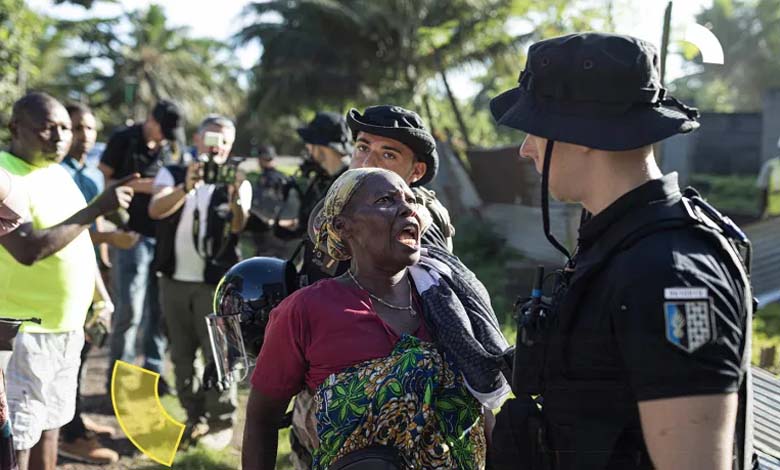Fears of Cholera Resurgence in French Mayotte: Migrants Fear Arrest

The tropical cyclone “Cheneso,” which struck Mayotte on Saturday, December 14, not only caused material and human damage but also triggered a health crisis, raising concerns about a cholera outbreak among the affected population, including migrants who fear arrest by French authorities and deportation while seeking help.
-
Mayotte Declared a Disaster Zone Due to Cyclone “Chido”
-
Mayotte: A French Island Devastated by Poverty before Cyclone “Chido”
According to CNews, the cyclone’s passage through Mayotte led to a health disaster marked by water shortages, floods, and inadequate healthcare infrastructure, increasing the likelihood of a cholera resurgence in this impoverished French territory.
Cholera is an infectious disease caused by the Vibrio cholerae bacterium, which primarily affects the digestive system. If not properly treated, it can be fatal in 50% of cases.
Cholera is mainly transmitted through the consumption of water or food contaminated with feces containing the bacteria, which thrive in areas with poor sanitary conditions, particularly during natural disasters.
-
Hundreds of Dead from Cyclone “Chido” in the French Archipelago of Mayotte
-
Evacuation of Around 1.1 Million People in India Ahead of Cyclone “Dana”
Water Crisis as a Key Factor
Mayotte, which has faced a severe water crisis for years, has become even more susceptible to the spread of cholera-causing bacteria due to the damage caused by the cyclone. Senator Salama Ramia, from the Renaissance party, highlighted this issue in a statement, noting that the main problem lies in the water, which is either unavailable or contaminated by mudflows or sewage overflows.
Former Health Minister Geneviève Darrieussecq stated, “We are on high alert regarding the health situation of the population, especially the risk of epidemics, with cholera at the forefront.” She added, “We have reached out to the World Health Organization (WHO) to expand health monitoring in Mayotte. There are no cholera cases currently, but I want to be proactive and have requested the preparation of 10,000 doses of cholera vaccine.”
Last spring, Mayotte already experienced a cholera outbreak that affected around 200 people and took three months for health authorities to control.
-
Tropical Cyclone “Gomani” Hits Madagascar Causing Fatalities and Severe Damage
-
Tropical Cyclone Tej in Yemen: Two Dead, 150 Injured, and 10,000 Displaced
Critical Situation for Migrants
Amid these concerns, rescue teams are intensifying efforts to assist those affected. Among them, migrants are the most vulnerable. Testimonies reveal their precarious conditions. Many fear arrest and deportation by French authorities while seeking help.
One such case is Désirée, who lost her home when the cyclone “Cheneso” hit the island. “My daughter and I have found shelter, but we don’t have a drop of water,” she told Info Migrants.
-
Typhoon “Kong-Rey” Shuts Down Taiwan, Dozens of Casualties
-
“The situation is catastrophic” : Myanmar Floods Leave 226 Dead
Speaking from a place where she could find network coverage, she added, “The water rose quickly. It was our neighbors who got me out with my daughter.” Désirée now lives with a friend in the Cavani neighborhood. This Burundian woman, whose asylum application was rejected, fears the worst.
Struggling to survive the storm’s aftermath, Désirée describes living in extreme poverty. “I still have some money, but we can’t go shopping because it’s hard to move around. We wash in the river, and a neighbor shares his generator so we can charge our devices.”
-
Tropical Storm “Ewinia” Leaves 7 Dead in the Philippines
-
Australian Storms: 9 Dead, Winds Uproot Trees
She notes that the fierce winds, which reached speeds of up to 226 km/h, left “dozens homeless, having lost everything.”
Due to the scarcity of food and drinking water, Info Migrants reports that many undocumented individuals, traumatized by years of increasingly harsh migration policies, are reluctant to visit distribution points for fear of arrest. Similarly, they hesitated to go to shelters before the cyclone.












